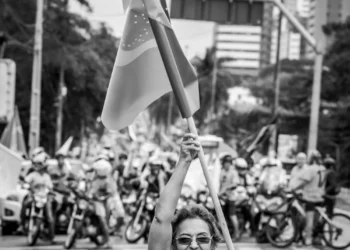by Vinício Carrilho Martinez*
Translated and Reviewed by Matheus Lucas Hebling
Without planning and strategy, making oneself political, democratic or not, is doomed to failure, since it does not bring together virtues. Let us see that political virtues can either include the notion of Strength + Vigor + Cunning + Stability or an idea of “vertú contra furore”, for a single author (MAQUIAVEL, 1979). In the sense of “value against fury (violence), in the Renaissance, we also find other virtues: strength, justice, prudence, and temperance (MAURO, 1998), interpreting Dante (1998).
Cardinal virtues (virtù) can be highlighted for the good exercise of power, such as courage, valor, capacity, and political effectiveness (BOBBIO, 1985). In any case, it can be seen that, without virtues, vicissitudes can either occur as “alternatives” or as mere instabilities; vicissitudes without virtues run through the logic of exclusion: if I didn’t make a mistake, I might have been right. But what will be the political cost? Let’s imagine a war in which the commanders say that they were neither wrong nor right, in the choice of means and strategies. Even if all war is unnecessary, how many people would have died, unnecessarily, by the mistakes of the command?
Therefore, when we have the perspective of the so-called political realism ( Realpolitik ), the compensatory bet – neither won nor lost – contracts a primary error, in logic (which does not admit the conjunction and/or, since exclusion – “or” -, and admission – “and” -, are antithetical) and in politics (which only admits victory), as the result may be no more than “zero-sum”. Zero to zero, in democracy, what is it? It is an invitation to the opportunistic engagement of disruptive forces: some from a fascist cohort. On the contrary, “making oneself political”, with ample vigor in the polis, precisely to avoid the heel of “luck”, demands political responsibility and that one lives for politics – and not “from politics” (WEBER, 1979). This is the basic, insular rule so that Caesar does not cross the Rubicon.
This broad scenario, theater of political operations, techniques, tactics, and strategies of clashes and landings, domination or direction, we can call the Democratic Principle: intertwining, sometimes unraveling through the political clash, but always, primarily, to improve between processes, actors, factors. In other words, one can/should “negotiate in democracy”; however, never negotiate “the” democracy.
It is not for nothing that techné means art, politics, and technique. The art of negotiation, but also the art of the domination of power: virtù, as the ancient Romans would say. Or, following the classical Latin, virtus, virtualis , potency, and reason, until arriving at the Reason of State: “In effect: ‘It is acquired with strength, it is preserved with wisdom; and strength is common to many, but wisdom belongs to few” ( Ricciardi, 2005, p. 56). After all, there is no escapism or “power vacuum”. According to Virtu, old-fashioned virtus (Pagan ethics dominated by individualism), someone else takes the place – whether a Kaiser or the militias. This, finally, reveals a complementary understanding, a contradiction between virtù and the virtues: associated with complacency. The complacent people watched the rise of National Fascism – this is proof.
In a stage of escapism, denialism, and political isolationism, it is common, for example, for outsiders to negotiate with the underground and the result, as a form of government, is equivalent to Brazilian Idiocracy: breathing in disruptive chloroquine vapors, to the political Lumpemproletariat that is content with emergency aid in the pandemic. As followers of Bonaparte, from farce to tragedy, we are cattle in the slaughterhouse of a Bonapartist Caesarism – between Marx (1978) and Gramsci (2000).
This error implies saying that the inertia, the apathy, the stranding of the excluded, which the Greeks called ídion – or the submersion/ subsidy of Brecht’s “Political Illiterate”, of Reich’s Political Nobody (1982) ), from La Boetie ‘s “volunteer servants” (1986), in that node, which is Zamiatin ‘s “We”, from Asimov’s Robot (2014) –, leads us to the lack of results in the theater of operations, when not we have neither strategy nor direction since we are sunk in the immobility that makes us hostages to political realism. This is how we banned Politics, this is how we denied the people the Banquet of the Gods (BACON, 2005).
In another reference, let us remember that the ancient Greeks gave empty oyster shells, in a number equivalent to the years of banishment, and exile, to the social being that would cease to be a “political animal”. As can be seen, it is also the penalty for those who defy the order: Sininho, from the Black Blocs, was judicially condemned to political isolation, to political desocialization.
In the classic lesson of Max Weber (1993), especially when we look at our courts, we see that the patriarchs who only “live off politics” thrive among us. In National Fascism, all that is not there is precisely the “social life for politics”. This idea makes explicit the sense that, in politics, the objective is to win and not necessarily to convince.
Finally, there is a difference between democracy and autocracy (the opposite) to be highlighted: it is the verification that only in autocracy are opponents converted into enemies. That is, democracy is not the basis of magical realism, much less of tragic realism; As the saying goes, “the best is bad”.
In social and political democracy, every effort towards autonomy – a breadth of horizons for those who set their own rules, to “make themselves political” – will have unfinished but mandatory benefits in the struggle against technobureaucracy and in the dismantling of idiosyncrasies that fuel social hatred and acts of institutional/state barbarism.
If we think that, by itself, the democratization of politics – the guarantee of political pluralism, as stated in CF88 (art. 1, V) – also does not guarantee much, because we can have much “more of the same”, like Institutional Revolutionary (Mexico), then, it is necessary to be clear that democracy always requires adjectives: political democracy, social democracy, economic democracy, cultural democratization. In this way, we confirm our major premise, by stating that: in the impact of the Political Charter – the Federal Constitution of 1988 -, democracy pays, because it is compensatory.
The last Spatio-temporal confusion that we should address – antipathy towards the Civilizing Process – refers to the disruptive clash between democracy (or its myriad) and the resurgence of abusive, dissociative, corrosive forms of social power, notably in the 21st century. To is confirmed by the brief list below: Coup to the Constitution, Fascism, Military or unconstitutional dictatorship, Caesarism, soft Bonapartism, “color revolutions”, Hybrid Wars, Technofascism, Necrofascism, Necropolitics, State of Exception. However, due to the space already occupied and the complexity of the questions and elements, they will be themes treated in a specific way and concerning the critical understanding of the (e)reader.
References
ASIMOV, Isaac. I steal. Sao Paulo: Aleph. 2014.
BACON, Francis. Novum Organum & New Atlantis . São Paulo: Editora Nova Cultural, 2005.
BOBBIO, Norberto. The theory of forms of government. 4. ed. Brasília: UNB Publishing House, 1985.
DANTE ALIGUIERI. The Divine Comedy – Hell . São Paulo: Editora 34, 1998.
GRAMSCI, Antonio . Prison Notebooks. (Org. Carlos Nelson Coutinho). Volume III. Niccolò Machiavelli II . Rio de Janeiro: Brazilian Civilization, 2000.
LA BOETIE, Étienne. Discourse on voluntary servitude . Lisbon: Antígona Editions, 1986.
MACHIAVEL, Nicholas. The Prince – Machiavelli: introductory course to political science. Brasília: Publisher of the University of Brasília, 1979.
MARX, Karl. The 18th Brumaire and Letters to Kugelmann. 4th ed. Rio de Janeiro: Peace and Earth, 1978.
MAURO, Italo Eugenio. The Divine Comedy – Hell . São Paulo: Editora 34, 1998.
RINCIARDI, Maurizio. Princes and Reason of State in the Early Modern Age. IN: Duso, Giuseppe (org.). Power: a history of modern political philosophy. Petrópolis-RJ: Voices, 2005.
REICH, WILHELM. Listening. Joe Nobody! 10th edition. Lisbon: publications Sun Quixote, 1982.
WEBER, MAX. Sociology essays. Rio de Janeiro: Zahar Editors, 1979.
_____ Science and Politics: two vocations. 9th ed. Sao Paulo: Cultrix, 1993.
WIDE, Oscar. The soul of man under socialism. Porto Alegre: L&PM Pocket, 2003.
Vinício Carrilho Martinez is an Associate Professor at UFSCar and head of the BRaS research Group – Constitutional Studies and BRAS.
Martinez, Vinício Carrilho. 2022. "Is there a political logic?". Brazilian Research and Studies Blog. ISSN 2701-4924. Vol. 3 Num. 1. Available at: https://www.bras-center.com/is-there-a-political-logic/, accessed on: January 16, 2026.








